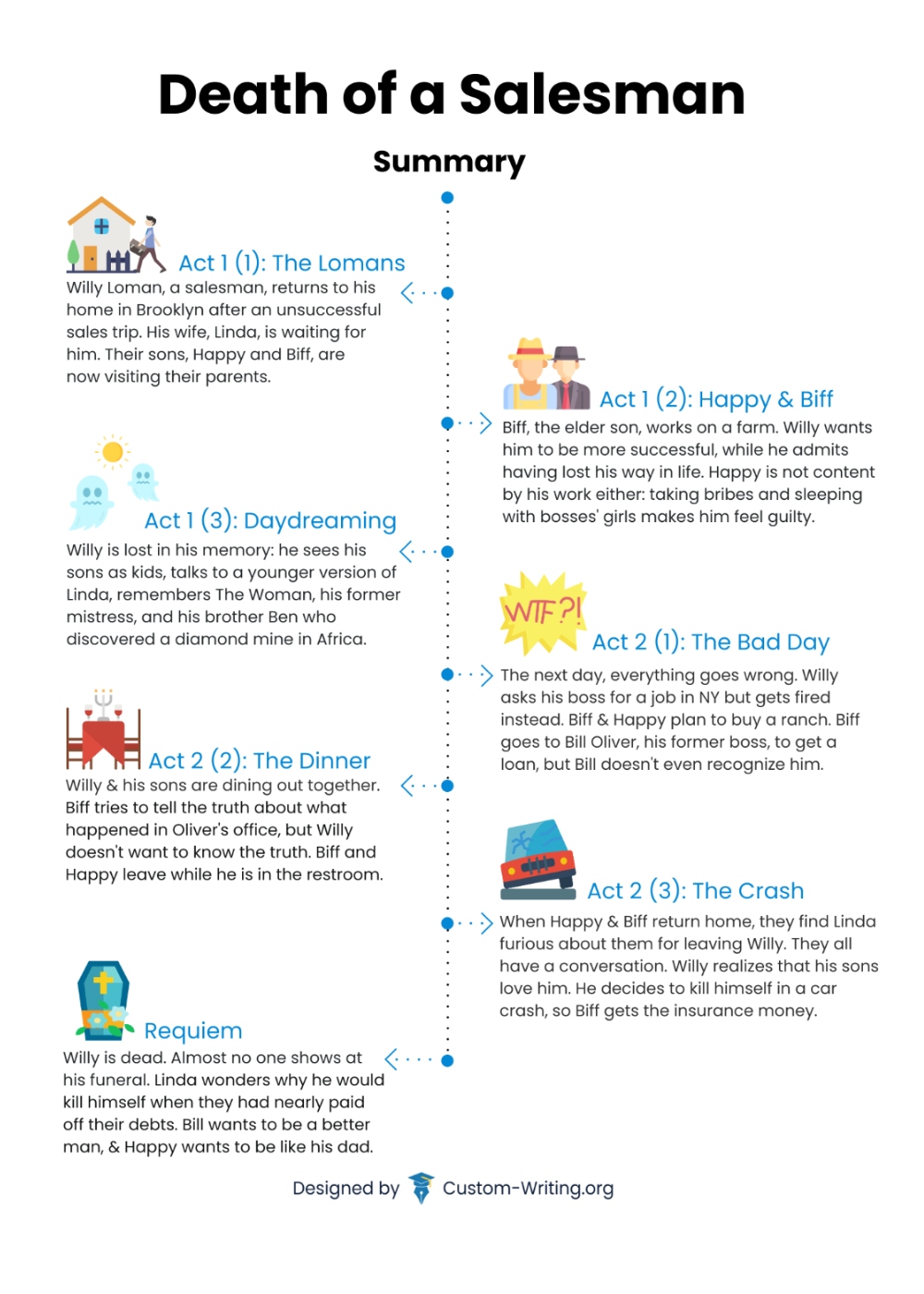
Willy works as a salesman because he thinks a white-collar job and a steady salary are essential components of the American Dream. He never pursues a career that makes him feel happy and fulfilled. Willy Loman’s concept of the American Dream is not his own. You can leave a response, or trackback from your own site.Ģ9 Responses to ““Death of a Salesman” Post 1”

You can follow any responses to this entry through the RSS 2.0 feed. Since he acknowledges that he, too, is a "fake," Biff can no longer hold a grudge against Willy.This entry was posted on Apat 12:29 pm and is filed under Uncategorized. Ironically, Biff reconciles with Willy almost immediately following this statement. Once Biff states that "We never told the truth for ten minutes in this house," he severs himself from Willy because he openly refuses to live by Willy's philosophy any longer. Biff is relieved once he realizes who he is and what he wants, as opposed to who Willy thinks he should be and who Biff needs to pretend to be in order to please him. It is only when he confronts Oliver that Biff realizes how wrong he was.īiff is different from Willy because he does finally accept and embrace the fact that he has been living a lie all of his life. For example, Biff truly believes he was a salesman for Oliver, rather than a shipping clerk. It is true that Biff is not a womanizer like his brother Happy, but he has incorporated Willy's tendency to exaggerate and manipulate reality in his favor. And as a result, he cannot change the fact that his father has inevitably affected him.

Instead, Biff despises his father and everything he represents.īiff's problem lies in the fact that, even though he does not want to associate with Willy, he cannot change the fact that he is his son. Biff considers Willy to be a "fake," and he no longer believes in, or goes along with, Willy's grand fantasies of success. Once he learns that Willy is having an affair, Biff rejects Willy and his philosophy. For example, instead of disciplining Biff for stealing the football, Willy praised his initiative.īiff's perception of Willy as the ideal father is destroyed after Biff's trip to Boston.

It is not surprising that Biff's penchant for stealing continued throughout his adult life because Willy encouraged Biff's "little thefts" while he was growing up. As a result, Biff grew up believing that he was not bound by social rules or expectations because Willy did not have to abide by them, nor did Willy expect Biff to. He believed his father's stories and accepted his father's philosophy that a person will be successful, provided that he is "well-liked." Biff never questioned Willy, even when it was obvious that Willy was breaking the rules. Prior to his Boston trip, Biff adored Willy. Whenever Willy is unable to accept the present, he retreats to the past, and Biff is usually there. He drives Willy's actions and thoughts, particularly his memories, throughout the play.


 0 kommentar(er)
0 kommentar(er)
